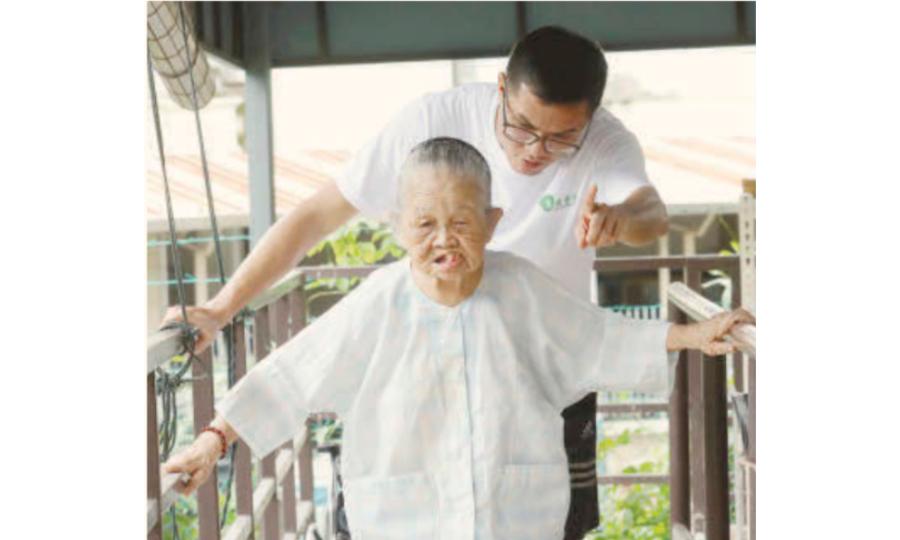GEORGE TOWN: Ngan Dou Tai may be one of the rare people who have survived two global pandemics, a century apart.
While there is no documented evidence of her date and year of birth, she claims to be 105-years-old, an assertion that many who have cared for her are happy to accept.
If she is indeed as old as she claims to be, she would have been only three when the Spanish Flu swept across Europe in 1918.
The estimated death toll of that first pandemic varied between 17 million and 50 million.
But Ngan was half a world away in China, where she was born and raised.
However, there is no escaping Covid-19. It has hit practically every country across the globe, infected more than 13 million people and taken more than half a million lives.
But Ngan, who now resides in Penang, does not seem to be worried about Covid-19.
All she wants is a passage back to China, an undertaking that may be challenging, if not impossible, given her advanced age and that she has no clue who or where her relatives are in China.
But for now, she is enjoying the attention she is receiving as a resident of the Peace and Harmony home in Bukit Dumbar, Jelutong.
When theSun spoke to her, she fished out an old photograph of herself (left pic), believed to have been taken when she landed in Malaysia to start work as an amah (housekeeper) for a wealthy Chinese family. Clad in a white blouse and black pants and her hair set back in the black-and-white photograph, she looked every bit the housekeeper of the era.
Amahs were a legacy of the early Chinese migrants to Malaya, Singapore and Hong Kong.
Not everyone who left China at the time were wealthy and many ended up working as housekeepers. But they were loved for their housekeeping and culinary skills and treated as part of the family in many households.
They were also known to pamper the children under their care.
Caretaker of the home, Tan Swee Ban, said Ngan had been working as a cleaner at a Buddhist temple on Burmah Road for decades.
When she could no longer walk without help, the monks sent her to the home. That was two years ago.
She is now confined to a wheelchair but the plucky woman would sometimes insist on going for walks with the assistance of a helper.
Ngan has also charmed her way into the hearts of fellow residents with her jokes and sometimes feisty outbursts.
She attributes her longevity to her smile.
Tan said he contacted the media after Ngan began talking about her wish to return to her birthplace in China.
“However, we could not trace her relatives as she arrived here without any identification documents,” he said.
Subsequent attempts to help her get an identity card failed because her thumb prints had faded with age.
He said he only learned of her age from the monks who sent her to the home.
Ngan recalled that she used to work for a family but could not remember who they were or where they have gone.
Tan appealed to anyone who could help Ngan trace her relatives to contact the home.









